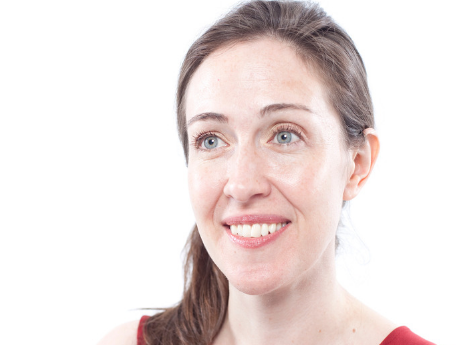In Their Own Words
Laura Cronk's “Having Been an Accomplice”

Having Been an Accomplice (an excerpt)
* * *
My rule and my reach will collapse
into a shadow of hair.
Collapse further into a stain
on the floor.
Body, so watery and delicate.
living on air and prepared dishes.
This smallness frets me,
no I fret it. I am laced in tight to it.
Breathlessness. Throats
I slit or would have slit
to prevent my own slitting,
to remain for even a moment more.
The police will descend and ascend,
moving up and down the ladder of heaven.
When I look at them to join them
I will be spitting.
I will be as horrid as anything dying,
as unapproachable, my ladylike nature
intact, not tacked on, but in
and spilling out.
My governance,
my jurisdiction is tainted
with cowardliness, with what I've done
for my own advance.
The revolutionaries stack themselves
as wood and burn.
Then stack themselves again and burn.
Their demand is fair: my end.
But I can't. I've a very small time
left in the palace.
I've got to go out on the balcony again
and feel the air.
All rights reserved. Reprinted with the permission of the author.
On "Having Been an Accomplice"
This poem originally stood on its own under the title "Collapse." It was one of the first pieces I wrote in what became the title series of my book. I was intent on writing seriously about death. The Iraq war was just beginning and was very much on my mind. I was thinking about my own lack of power and courage in that context.
At the time I remember talking a lot to my poet friend Wende Crow about a book she introduced me to: Helene Cixous's Three Steps on the Ladder of Writing. My favorite poets from the canon are the emotional superstars—Rilke, Neruda, Tsvetaeva—and this book provided a map for heading into deep emotional territory. The idea in this poem of moving not only up but also down the ladder of Heaven comes from that book. I began to see that much of what I love to read functions as dreams do, with immediate intensity, with transitions stripped away. This book encouraged me to trust what I had intuitively believed before—that some kind of break has to occur to create work that is worthwhile. I still love the importance Three Steps places on dreaming, death, and ancestry in writing. But now, like a teenage daughter with her mother, I feel repulsed when I pick up the book, I am ungrateful, I need to break away.
Since I first began this poem, I've had two children. Deciding to make a project out of writing about death seems foolish to me now. It used to feel like important work. Now it feels like bad luck. It's my job to keep death as far away from all of us as possible. Or is my job to face mortality with grace? I felt death's entrance into the room on the days my children were born. On those two days I was forced to both accept and reject the abyss.
My almost four year old daughter has been asking a lot of questions about death lately. She wants to know what dying is, what heaven is, who God is. I wish I had better answers. She has gotten alarming details out of me about nails in hands when I tried to explain a picture she saw of Jesus on the cross. I wish every time she asks about death that I had a theology (a poetics?) I could get behind. I believe one day I will. Until then, I tell her that these things are very mysterious. One night a few weeks ago I sat on the foot of her bed in the dark. We were talking about outer-space. The conversation took a turn and she wanted to know if heaven is in outer-space. I said I wasn't sure, but that I thought it was even farther away, that it's mysterious. Getting frustrated, breaking away, deciding to see for herself, she said, "I'm going to be an astronaut when I'm a grown-up and you're dead." When I protested and said that I am going to live for a long time, she said, "Mama, I'm just pretending."


